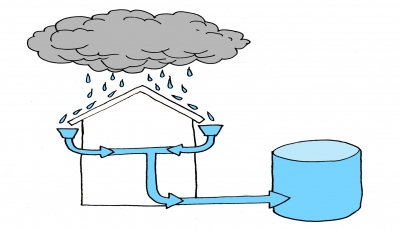Checking Out the Value of Reclaim Waste in Sustainable Waste Management Initiatives
In the world of lasting waste administration, the principle of reclaiming waste becomes a vital element that requires attention and consideration. As we navigate the complexities of contemporary garbage disposal practices, the significance of reclaiming waste unveils a nuanced approach to mitigating ecological effect and promoting a more lasting future. By taking a look at the intricate interaction between waste reclamation and sustainable waste administration campaigns, we start to unwind a story that expands past conventional garbage disposal methods. With a lens that prioritizes source effectiveness and ecological conservation, recovering waste supplies an engaging opportunity for attending to pushing ecological difficulties while leading the way for cutting-edge remedies in the world of waste administration.
Importance of Reclaiming Waste
Why is reclaiming waste necessary in lasting waste administration practices? Reclaiming waste plays a crucial duty in lasting waste administration by minimizing the quantity of waste sent out to garbage dumps, conserving all-natural sources, and lessening environmental influence.
Furthermore, redeeming waste promotes a round economy where products are reused and recycled continually, promoting an extra effective and sustainable usage of resources. It also contributes to the production of environment-friendly tasks and economic development in the recycling and waste management market. By including waste reclamation practices into waste management strategies, communities and companies can relocate towards a more sustainable future, where waste is viewed not as a worry however as a useful resource.
Advantages for the Setting
In the realm of sustainable waste monitoring, the technique of redeeming waste not just decreases and saves natural sources waste sent out to landfills but also yields significant advantages for the environment. By reclaiming waste materials, such as metals, glass, plastics, and raw material, the ecological influence of source extraction and manufacturing is minimized (Reclaim Waste Melbourne). This brings about decreased power intake, lowered greenhouse gas emissions, and reduced degrees of air and water air pollution connected with extracting resources
Furthermore, reclaiming waste assists in the preservation of biodiversity and natural environments. It minimizes the demand for land fill room, therefore reducing land degradation and habitat damage. Furthermore, the process of recovering waste often includes recycling and repurposing products, which in turn reduces the demand for brand-new products and the connected power and sources required for their production.
Payment to Circular Economy
Playing a crucial function in promoting sustainability and resource effectiveness, recovering waste makes a considerable contribution to the round economic situation. By reintroducing discarded products back right into the production cycle, redeeming waste lessens the need for virgin sources, consequently decreasing the total environmental effect of source extraction and intake. This procedure straightens with the principles of the circular economic climate, which emphasizes making best use of the worth and energy of sources via closed-loop systems.
Furthermore, recovering waste promotes development and motivates the growth of brand-new technologies and procedures for reusing and upcycling products. This not just lowers waste sent out to landfills yet additionally produces new economic chances by producing secondary resources for producing sectors. As a result, redeeming waste assists to create a much more lasting and resistant economic climate that is much less reliant on scarce resources you can try these out and prone to interruptions in the supply chain. Eventually, by incorporating waste recovery practices right into waste management communities, initiatives and services can proactively add to constructing an extra circular and regenerative economic climate.
Minimizing Landfill Waste

Education and awareness projects on correct waste disposal and the relevance of reducing, reusing, and recycling can likewise play a critical role in lowering land fill waste. By prioritizing the decrease of landfill waste, sustainable waste monitoring practices can be enhanced, leading to a much healthier environment and economic situation.

Future Implications
Thinking about the rapid advancements in technology and progressing environmental difficulties, the future ramifications of lasting useful link waste monitoring are poised to reinvent present practices. The adoption of innovative innovations such as fabricated intelligence, Internet of Points (IoT), and blockchain can considerably enhance waste monitoring, arranging, and reusing procedures. These improvements enable real-time tracking of waste streams, identification of recyclable materials, and boosted performance in resource allocation.
Moreover, the shift towards a round economic situation design, where resources are reused, reused, or upcycled, will come to be increasingly common. This shift not just minimizes the reliance on virgin materials but likewise reduces waste generation, resulting in a more ecologically friendly and lasting waste management technique.
Furthermore, the combination of lasting waste administration techniques right into more comprehensive sustainability schedules is expected to acquire traction. Reclaim Waste. Organizations and federal governments worldwide are acknowledging the importance of waste reduction and recycling in combating environment modification and advertising a round economic climate. Because of this, guidelines and policies sustaining sustainable waste administration campaigns are most likely to end up being a lot more rigid, driving sectors in the direction of more environment-friendly methods
Conclusion
In verdict, the value of redeeming waste in lasting waste monitoring efforts can not be overemphasized. By redeeming waste, we can minimize environmental influence, add to a circular economic situation, and lessen land fill waste.
By checking out the elaborate interaction between waste improvement and sustainable waste monitoring initiatives, we begin to unravel a story that prolongs beyond traditional waste disposal methods. Recovering waste plays a crucial role in lasting waste management by lowering the quantity of waste sent out to garbage dumps, saving natural resources, and reducing environmental effect. By incorporating waste improvement techniques right into waste monitoring organizations, neighborhoods and methods can relocate this link in the direction of a much more sustainable future, where waste is seen not as a burden however as a useful source.
